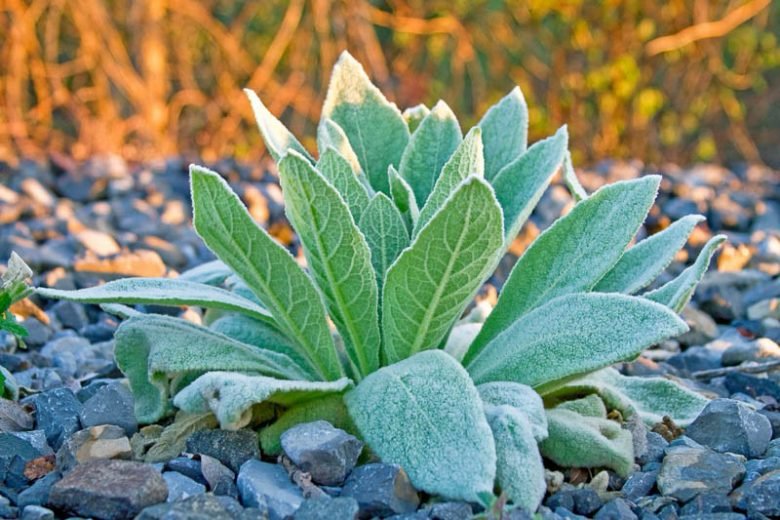Mullein, scientifically known as Verbascum thapsus, has been used for centuries in traditional medicine for its versatile healing properties. Native to Europe, North Africa, and Asia, this tall, woolly plant with its bright yellow flowers has become widely recognized for its potential to support respiratory health, soothe inflammation, and more. In this article, we’ll explore the history, medicinal uses, and benefits of mullein, highlighting why this ancient herb has stood the test of time.
What Is Mullein?
Mullein is a biennial plant, meaning it completes its life cycle in two years. In the first year, it forms a rosette of large, velvety leaves close to the ground, while in the second year, it sends up a tall flowering stalk that can grow up to six feet. The plant has been revered in folk medicine for its ability to treat a variety of ailments, particularly those affecting the respiratory system.
Medicinal Uses of Mullein
Mullein has been traditionally used to address a range of health issues. Below are some of its most well-known medicinal applications:
- Respiratory Health
Mullein is perhaps most famous for its role in supporting respiratory health. Herbalists have long used mullein leaves and flowers to create teas, tinctures, and syrups to help with respiratory issues such as coughs, bronchitis, asthma, and chest congestion. The plant’s expectorant properties help clear mucus from the lungs, while its soothing qualities can reduce inflammation in the respiratory tract.
- Mullein Tea for Cough Relief: Drinking mullein tea can help alleviate persistent coughs by loosening phlegm and calming irritated airways.
- Asthma Relief: Mullein’s anti-inflammatory properties make it beneficial for reducing airway constriction and improving breathing in individuals with asthma.
- Anti-inflammatory and Pain Relief
Mullein contains compounds like flavonoids and saponins, which possess anti-inflammatory properties. These compounds can be applied topically or ingested to help reduce inflammation and pain in various parts of the body. Mullein oil, made from the plant’s flowers, is often used to soothe joint pain, muscle soreness, and even earaches.
- Mullein Oil for Ear Infections: Mullein oil has been used for centuries to treat ear infections and soothe ear pain, particularly in children. Its antimicrobial properties can help fight the bacteria causing the infection, while its anti-inflammatory effects reduce pain and swelling.
- Skin Health
Due to its anti-inflammatory and antimicrobial properties, mullein is also used to treat skin conditions such as eczema, wounds, and burns. The leaves can be made into a poultice to apply directly to the affected area, helping to reduce swelling and promote healing. - Digestive Health
Mullein has also been used to support digestive health. Its demulcent properties help soothe irritated mucous membranes in the digestive tract, making it useful for treating issues like ulcers and gastrointestinal inflammation. Additionally, mullein has mild laxative properties that can help relieve constipation.
How to Use Mullein
There are various ways to incorporate mullein into your wellness routine:
- Mullein Tea: The most common way to use mullein is by brewing its dried leaves or flowers into a tea. Steep 1-2 teaspoons of dried mullein in hot water for about 10 minutes and enjoy the soothing effects on your throat and lungs.
- Mullein Oil: Mullein flowers are infused in olive oil to create mullein oil, which can be applied topically to relieve pain, inflammation, or ear infections.
- Tinctures: Mullein tinctures are concentrated herbal extracts that can be taken internally to help with respiratory issues or inflammation.
Safety and Side Effects
Mullein is generally considered safe for most people when used appropriately. However, some individuals may experience mild skin irritation when applying it topically. It is essential to ensure that mullein products are sourced from reputable suppliers to avoid contamination with toxic plants. As always, consult a healthcare provider before using mullein, especially if you are pregnant, breastfeeding, or taking other medications.
Conclusion
Mullein is a time-tested herbal remedy with a wide range of medicinal uses, particularly for respiratory health. From its ability to soothe coughs and reduce inflammation to its application in treating skin conditions and ear infections, mullein continues to be a valuable herb in both traditional and modern medicine. Whether you’re drinking mullein tea or using mullein oil, incorporating this ancient herb into your wellness routine can offer a natural, holistic approach to health.
References
- WebMD. “Mullein: Uses and Benefits.” Available at: https://www.webmd.com/vitamins/ai/ingredientmono-572/mullein
- Healthline. “Mullein: Benefits, Side Effects, Dosage, and Interactions.” Available at: https://www.healthline.com/health/mullein
- American Botanical Council. “Mullein.” Available at: https://abc.herbalgram.org/site/HerbLibrary/Mullein
This article explores the many medicinal benefits of mullein, highlighting its role in respiratory health and beyond, offering readers a detailed yet accessible guide to using this ancient herb in modern wellness.




